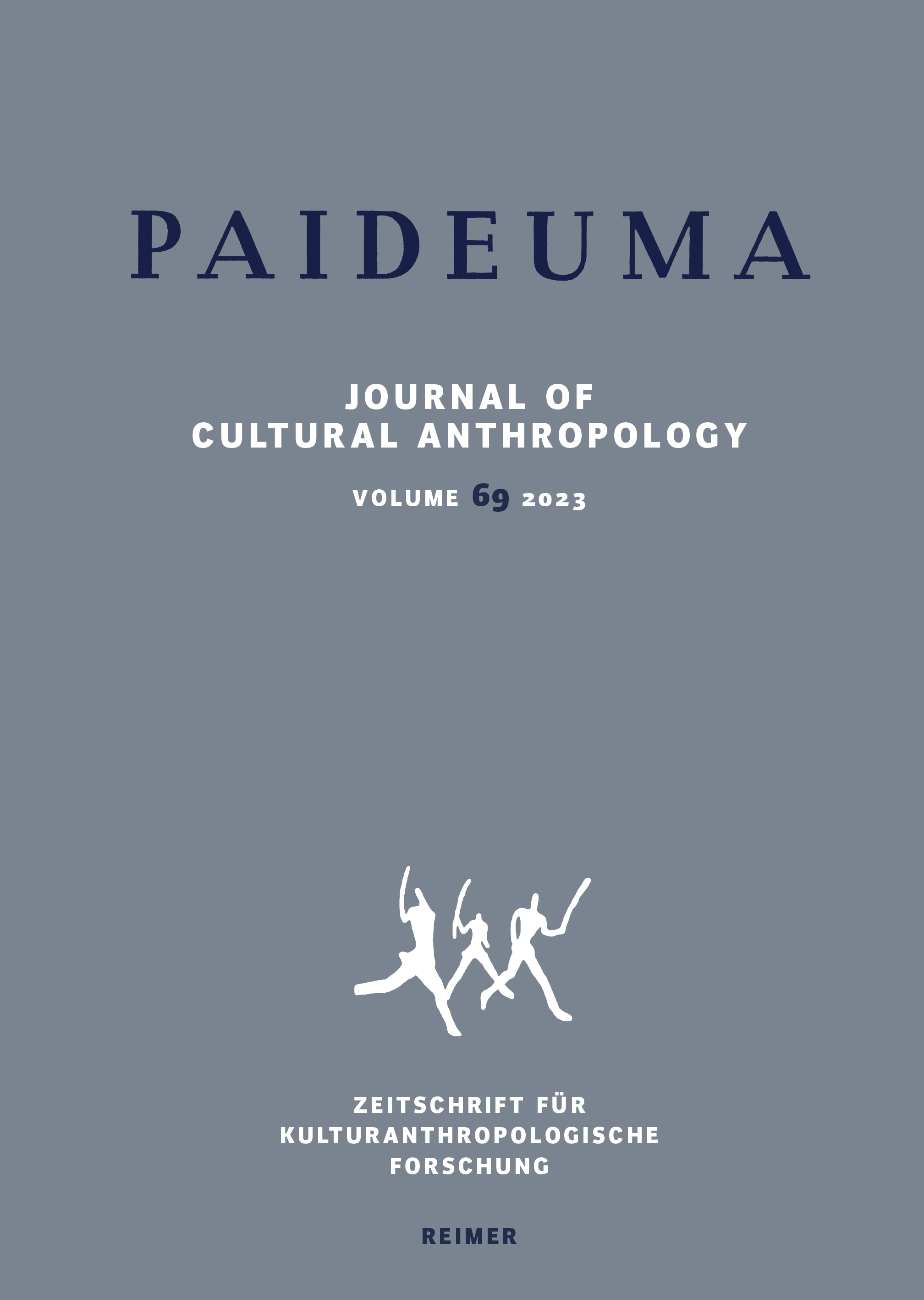Nervous memories and caste trouble
Remembering the transnational histories of Indian anthropologists and the tensions of caste and anti-casteism
DOI:
https://doi.org/10.21248/paideuma.882Abstract
Caste has been a central concept in anthropological theorizations about Indian society. It has been used to explain the cultural diversity and biological variation in the subcontinent as well as the structure that gives India a functioning, cohesive society. But caste has also been looked at through the critical lenses of inequality, as a marker of hierarchy that has justified segregation and cements historical injustices. These different approaches to caste and (anti-)casteism are often in tension in the space of Indian anthropology, a tension that is analogous to the friction between the different approaches to race and (anti-)racism. This paper examines how such tension emerges in the remembrance and commemoration of two central historical figures in Indian anthropology, namely Bhimrao Ramji Ambedkar and Irawati Karve. By tracing the transnational genealogy of these two scholars, I show how their own work on caste was affected by two German figures who represent both sides in a key debate in anthropology, namely the cultural anthropologist Franz Boas (a prominent figure in the school where Ambedkar was trained) and the racial anthropologist Eugen Fischer (Karve’s PhD supervisor). This transnational 'history of the present' of anthropological approaches to caste(ism) aims to contribute to understanding a key question in anthropology, in India as elsewhere: how to deal with the trouble of classifying and conceptualizing human differences and social inequalities.
Downloads
Veröffentlicht
Ausgabe
Rubrik
Lizenz
Copyright (c) 2024 Paideuma

Dieses Werk steht unter der Lizenz Creative Commons Namensnennung - Weitergabe unter gleichen Bedingungen 4.0 International.
Dieses Werk steht unter der Lizenz Creative Commons Namensnennung - Weitergabe unter gleichen Bedingungen 4.0.






